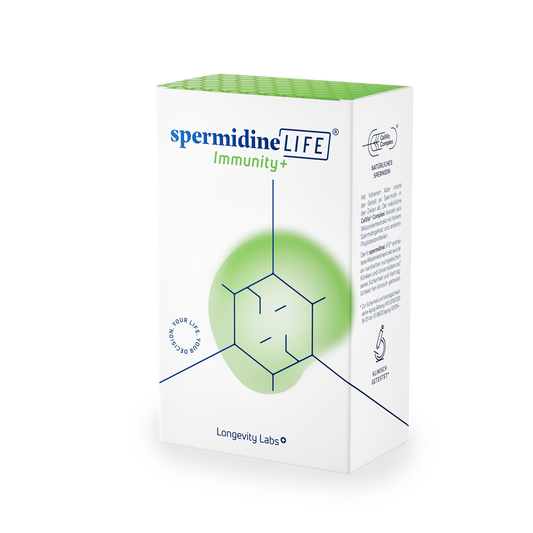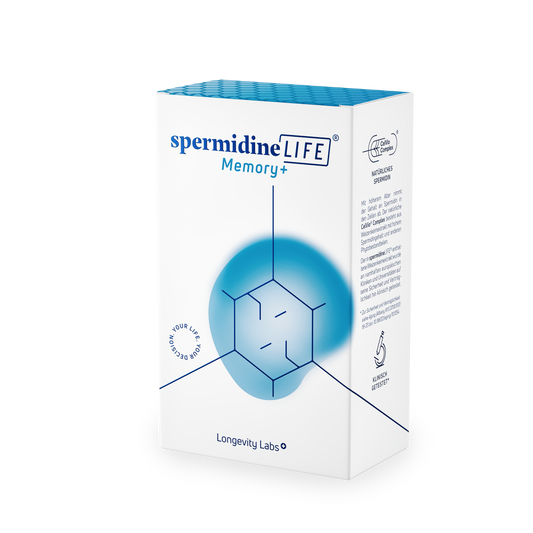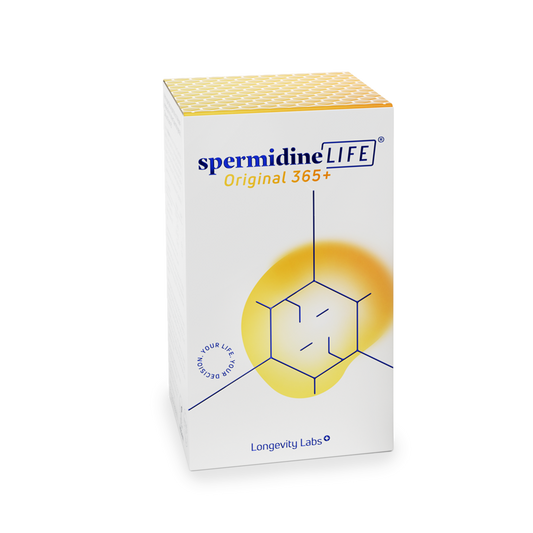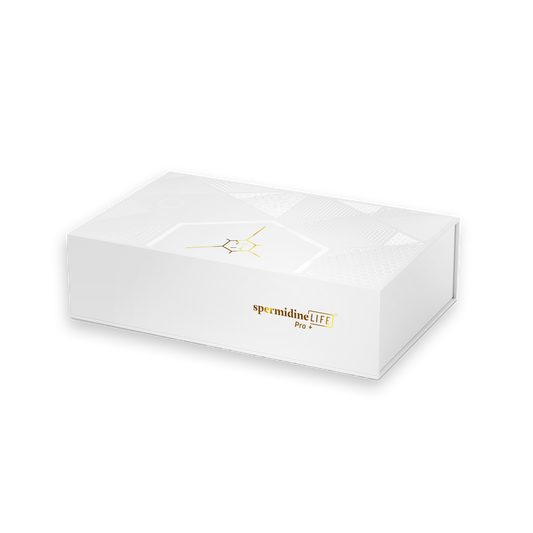
Inner balance in everyday life strengthens the immune cells - guest post by Suzanne (Instagram: @SuzanneFreiherz)
Immunity+, TLL LongevityLabsBalance is a fantastic word. It tells us quite clearly what health means: a balance between too much and too little. But most of the time we have too much stress and too little regeneration. We know we're not doing ourselves any good, but are you aware that this imbalance directly affects your immune system?
Maybe it occurs to you that you are more susceptible to infections when you are under constant stress. You are absolutely correct in this observation. Every cell in the body reacts to our state of mind, including the cells that support our immune system. immune system immune system. Stressed cells? Yes, indeed. Stress that comes and goes is not a problem. Isolated stress can be extremely positive and inspire us. However, if it becomes a permanent condition, it is not only reflected in our mind and our perception, but even upsets the work of our cells. Just as everything becomes too much for us in permanent stress mode, our cells no longer work optimally to successfully protect us from pathogens. In the case of permanent stress, the number of immune cells in the blood and the activity of our natural killer cells, which kill diseased cells, is reduced. T lymphocytes, which are part of our acquired immune system, also divide more slowly.
We can't simply turn off stress in our lives, but we can reduce it and counterbalance it. Think of your everyday life as a pharmacist's scale: Stack your stress in one bowl and put rest and recovery in the second bowl. Is the stress bowl heavier and sinking to the bottom? The scale shows us quite clearly: we need to fill the other bowl more so that stress and rest balance each other out and we have a positive effect on our health. Miraculously, there are very simple actions that will reduce stress, balance your system, and thus do your immune cells good.
1. balance obligations and free time
Can you remember the last time you did something that simply brought you joy? We tend to fill our free time with activities that move us forward. In doing so, we give appropriate weight to anything that advances us professionally, because the more stress we have, the more our thinking revolves around our obligations. Maybe you like to read and consciously choose reference books so that you can further your education and benefit professionally. That's great, but your free time should give you the opportunity to switch off sometimes. So choose a book for your weekends that is not a technical book, but one that simply gives you pleasure. You'll see how relaxing it is to read for the sake of pleasure. It's liberating to realize you don't have to take notes and can confidently read over a few sentences and still follow the book effortlessly. This is what free time feels like: You put your feet up, read the book, and catapult yourself into a world that has nothing to do with your obligations. This detachment is like a short vacation and your immune cells can regenerate. It doesn't have to be reading, of course - choose something you look forward to: go for a walk without thinking about your obligations, watch a movie, learn a language, or tend your garden.
Schedule specific periods of time for activities that bring you pure joy. Why schedule? Simple: to make sure you actually make time for them. Congratulate yourself every time you do something for joy. The two bowls of your scale come into balance by giving joy more weight and space in your life. This inner balance nurtures your immune cells so that they can perform their functions.
2. give equal weight to activity and rest
Since we're on the subject of planning: Schedule spaces of doing nothing. Yes, you read that right. Leave spaces in the evening or on the weekend when you don't have anything planned - not even recreational activities. To work optimally, the human body needs a balance between activity and rest. This is reflected particularly clearly in the sleep-wake rhythm, but it also applies to the way we organize our day. If we are under a lot of stress, we need all the more breaks and rest periods. Leisure time stress is not a foreign word, but reality. That's why less is often more when it comes to organizing your free time. Be brave and do nothing in the evening.
Practice valuing doing nothing. Turn off your smartphone, computer, music - everything - and enjoy the silence. Be aware of how pleasant it feels to not have to go anywhere; to actually not have to do anything at all. You may, you can, but you don't have to. Bathe in this awareness. As the scales of rest and activity come back into balance, your immune cells cheer because you are taking such good care of them.
3. balance priorities
You may be wondering now where you are going to find the time to schedule activities that bring joy and then periods of doing nothing. Isn't it amazing how we never have time for certain things? This is because we all only ever have time for that which is important to us. That's why we need to start prioritizing our well-being now. Realize that your health is the most valuable thing you have. Don't put off your well-being until the next weekend and from there to the next vacation. Yes, of course your daily tasks are important and everything always seems so urgent that it can't wait. But we often forget that the basic prerequisite for our performance is our health. So, as a logical consequence, taking care of our well-being must be a priority. When you are well, you have more energy and you can do your duties faster and more effectively. You do not lose time - on the contrary.
You gain time and quality of life. Knowing this, take your schedule right now and with a smile and deep appreciation for your health, enter your joy activities and your spaces of doing nothing. Do you already feel how the two bowls of the scale settle at the same height?
Life in balance
Before, just looking at your schedule was enough to stress you out, but now the picture is completely different: everything - your commitments, your joy activities and your rest periods - now has its place and its value. If you now look at your weekly schedule, you will see a fulfilled, balanced life. You are needed, you are doing important tasks, you are lovingly taking care of yourself, you are there for your loved ones, and your immune cells reflect this newfound balance and can fully develop their powers.
Suzanne Freiherz
Mental and fitness coach, linguist, podcaster, founder of YUNA® and positive communication coach.
Instagram: @suzannefreiherz






